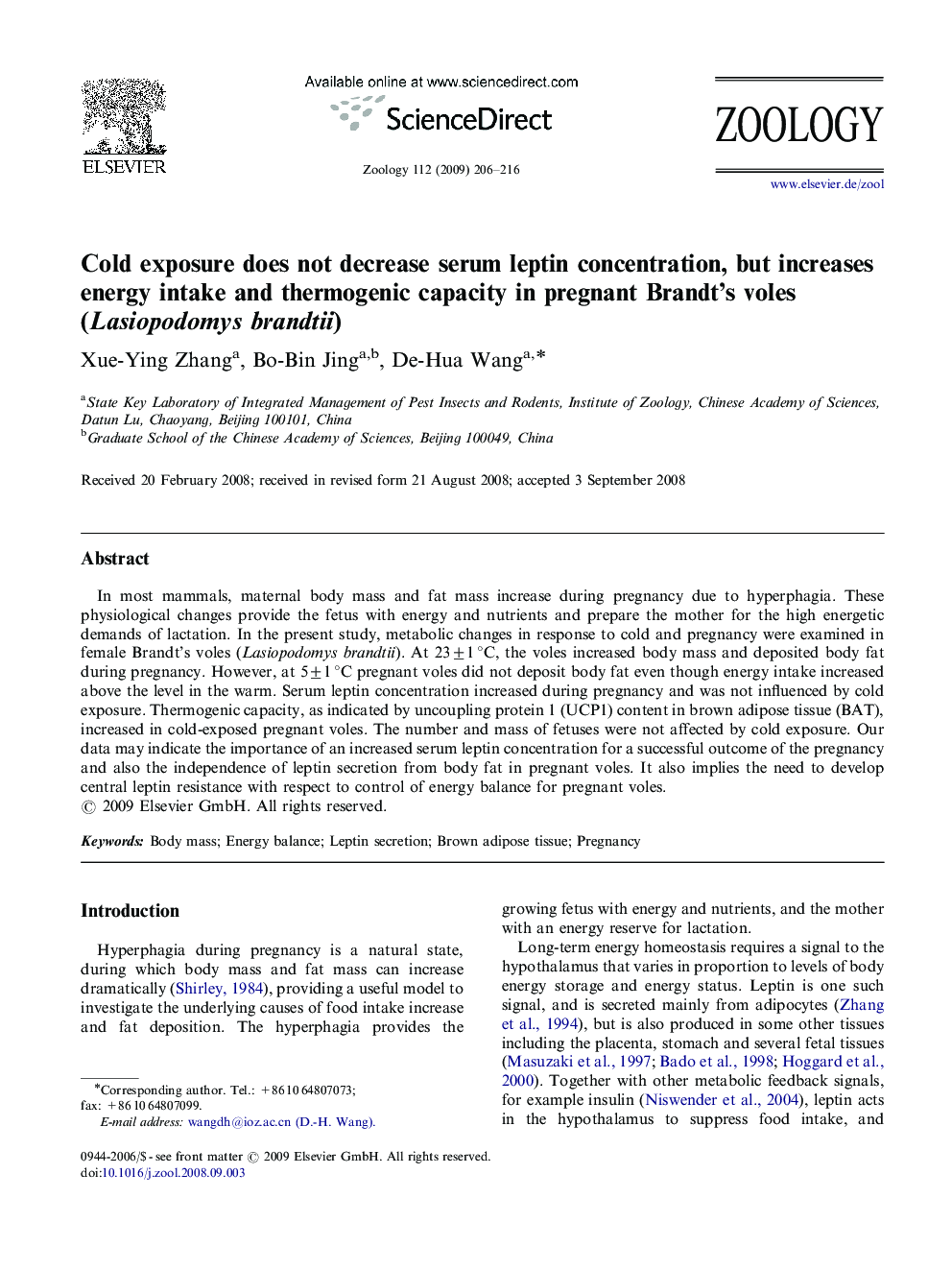| Article ID | Journal | Published Year | Pages | File Type |
|---|---|---|---|---|
| 2791386 | Zoology | 2009 | 11 Pages |
In most mammals, maternal body mass and fat mass increase during pregnancy due to hyperphagia. These physiological changes provide the fetus with energy and nutrients and prepare the mother for the high energetic demands of lactation. In the present study, metabolic changes in response to cold and pregnancy were examined in female Brandt's voles (Lasiopodomys brandtii). At 23±1 °C, the voles increased body mass and deposited body fat during pregnancy. However, at 5±1 °C pregnant voles did not deposit body fat even though energy intake increased above the level in the warm. Serum leptin concentration increased during pregnancy and was not influenced by cold exposure. Thermogenic capacity, as indicated by uncoupling protein 1 (UCP1) content in brown adipose tissue (BAT), increased in cold-exposed pregnant voles. The number and mass of fetuses were not affected by cold exposure. Our data may indicate the importance of an increased serum leptin concentration for a successful outcome of the pregnancy and also the independence of leptin secretion from body fat in pregnant voles. It also implies the need to develop central leptin resistance with respect to control of energy balance for pregnant voles.
